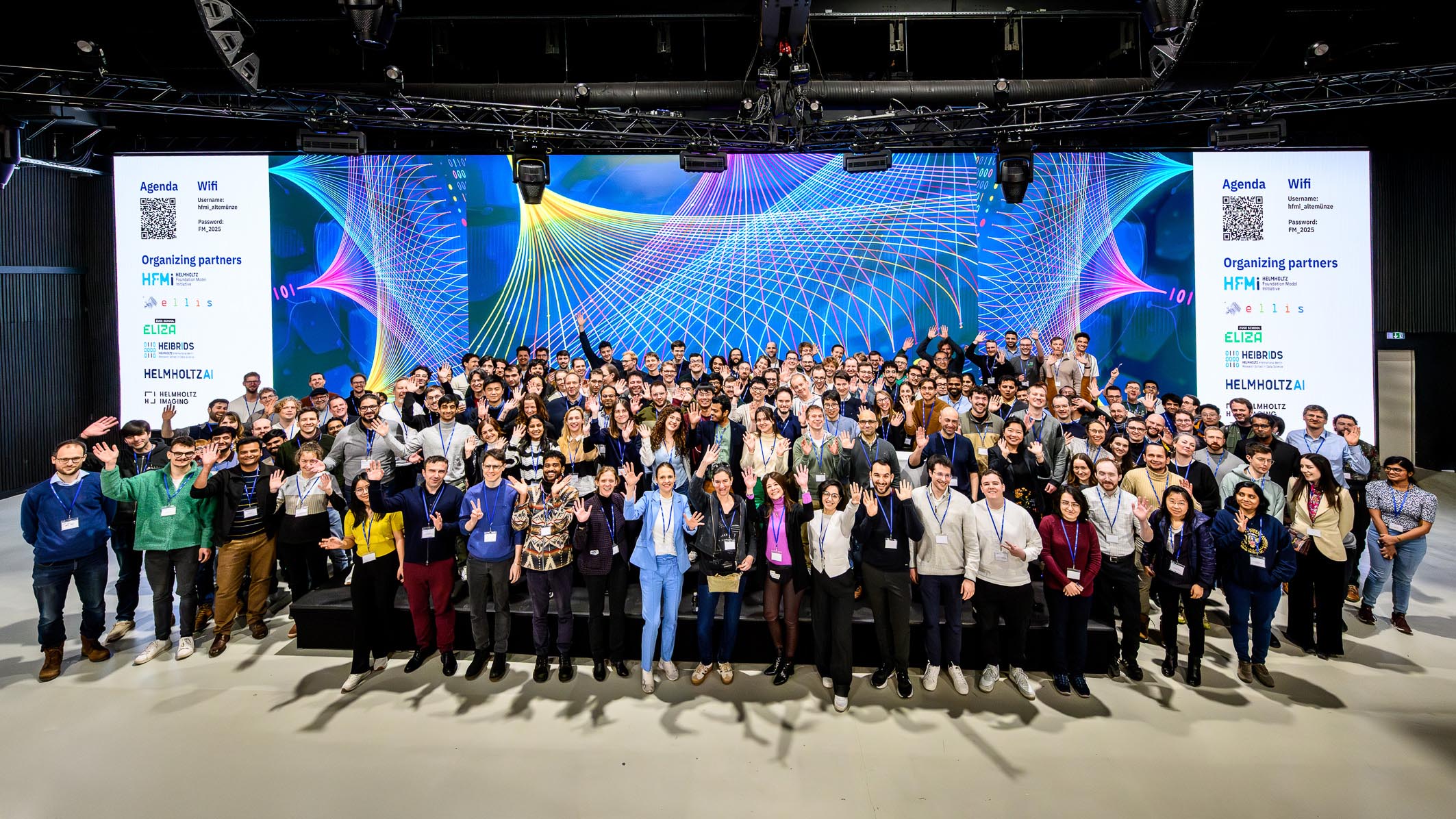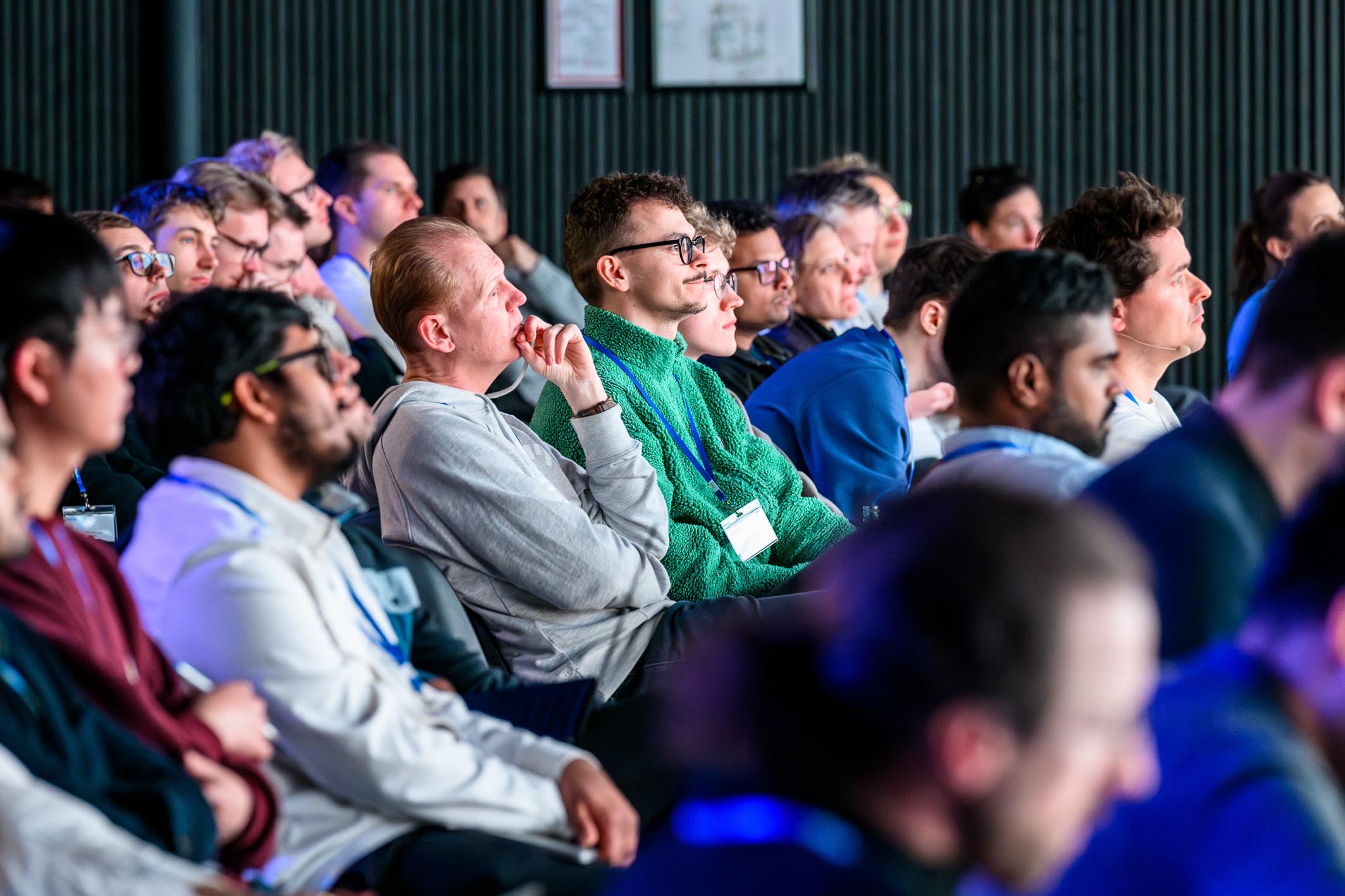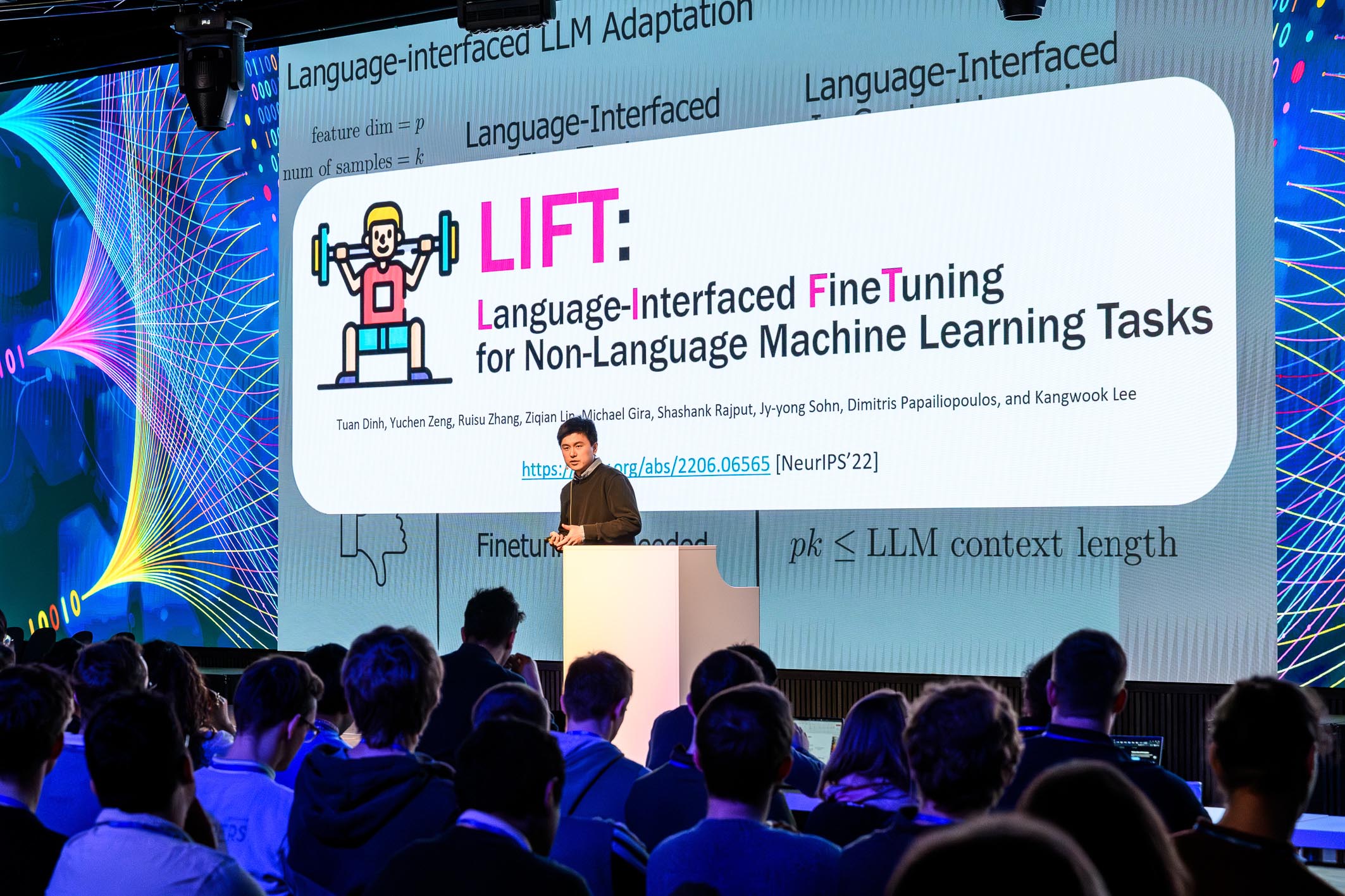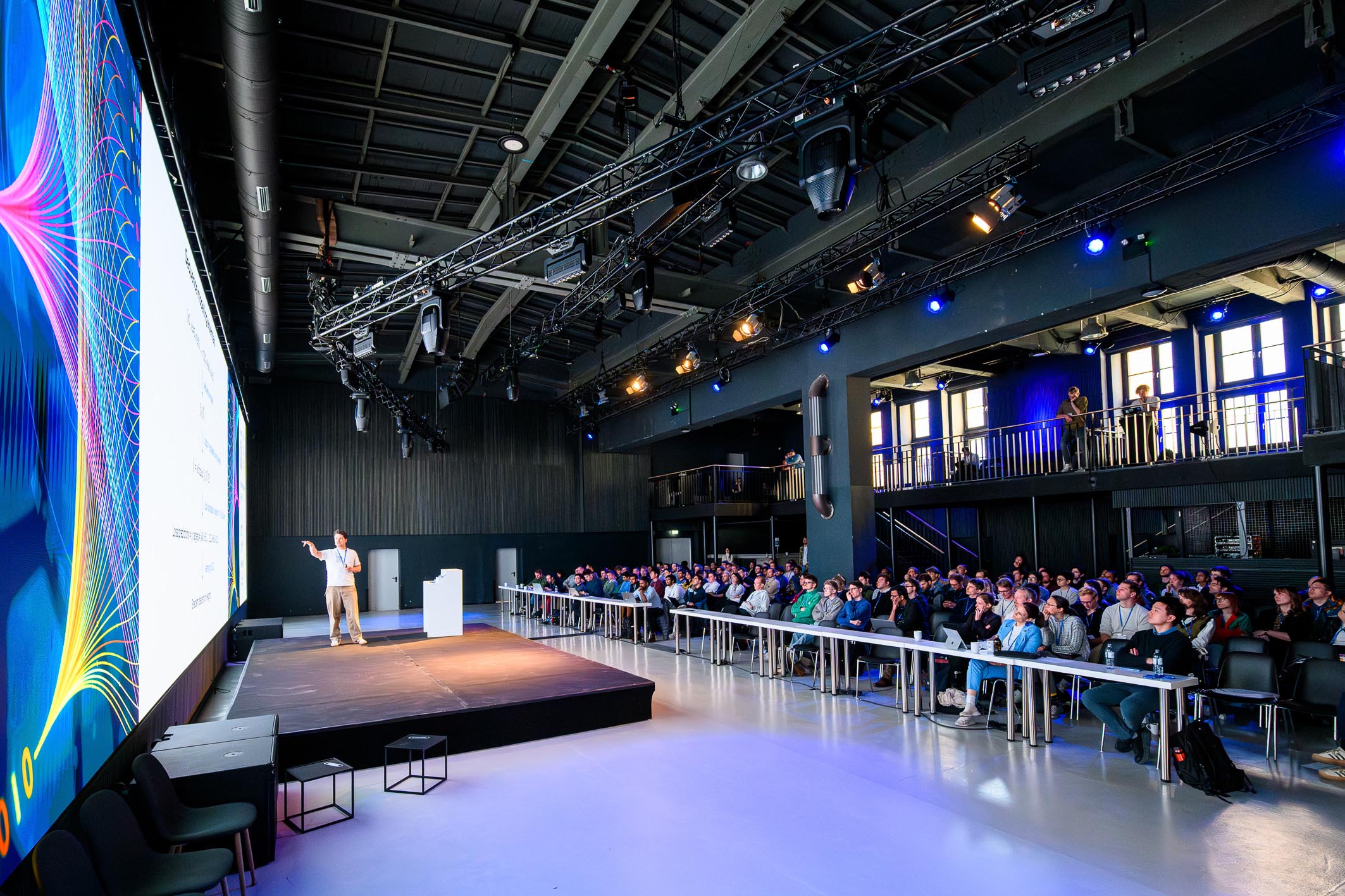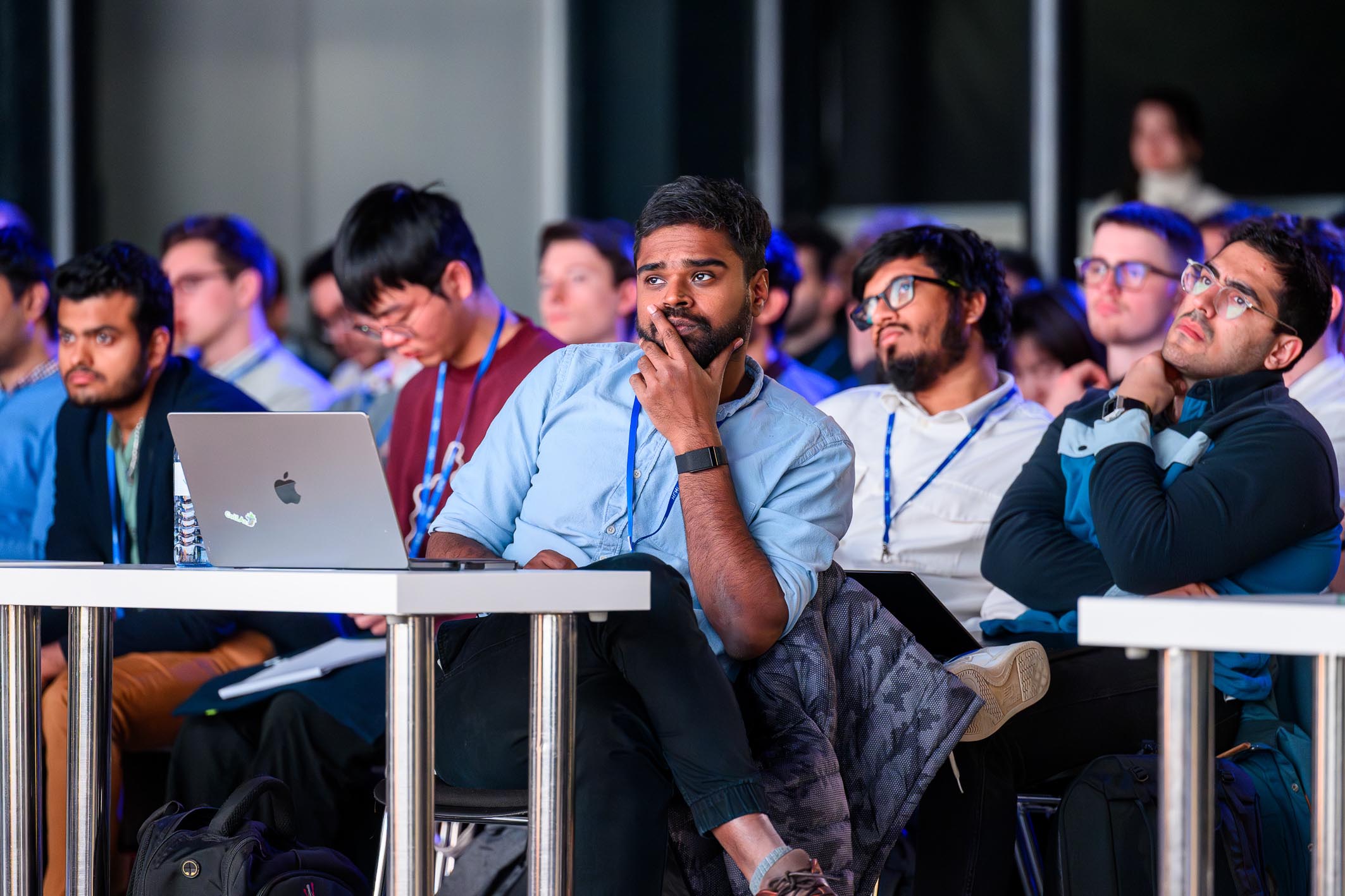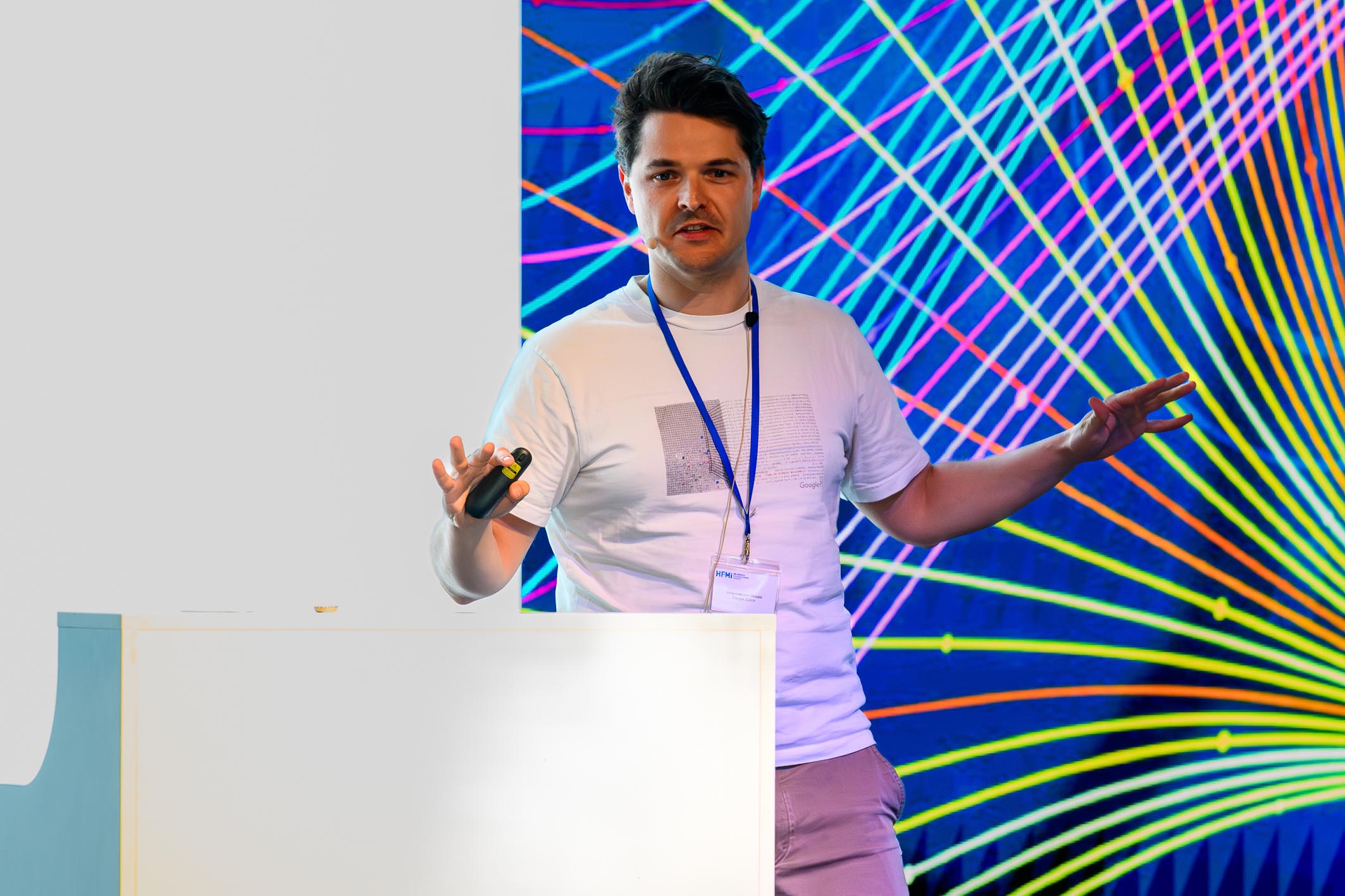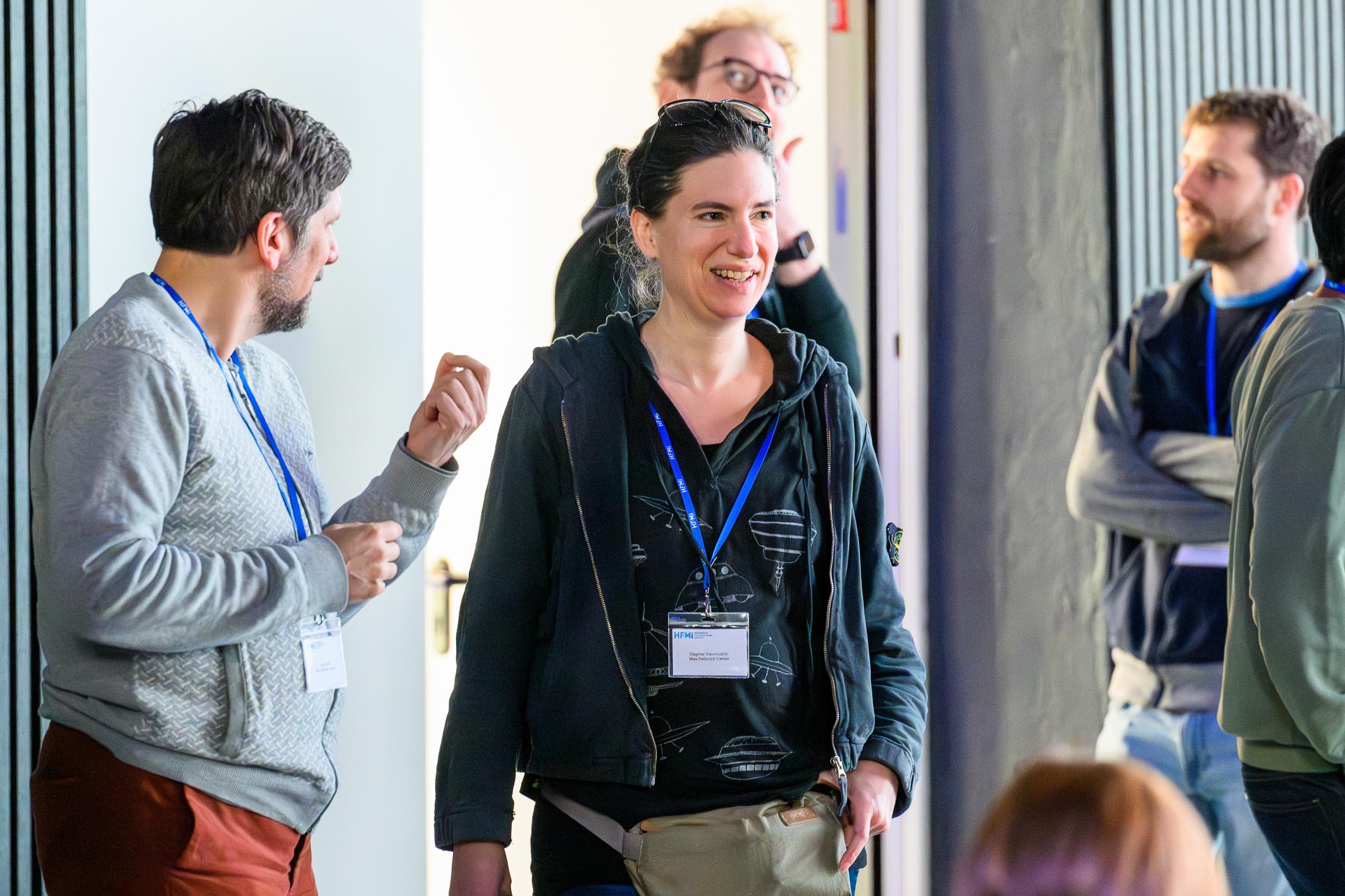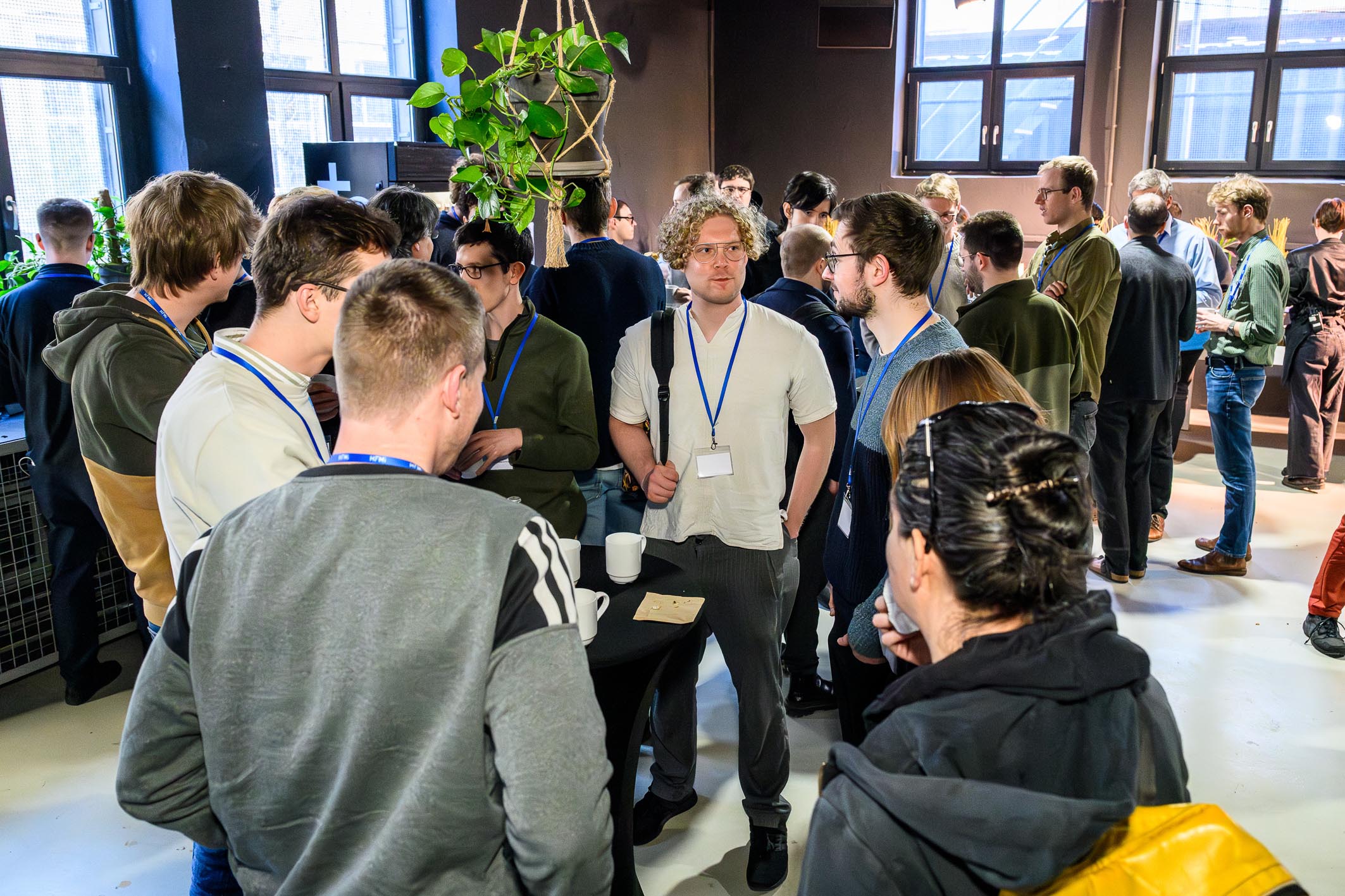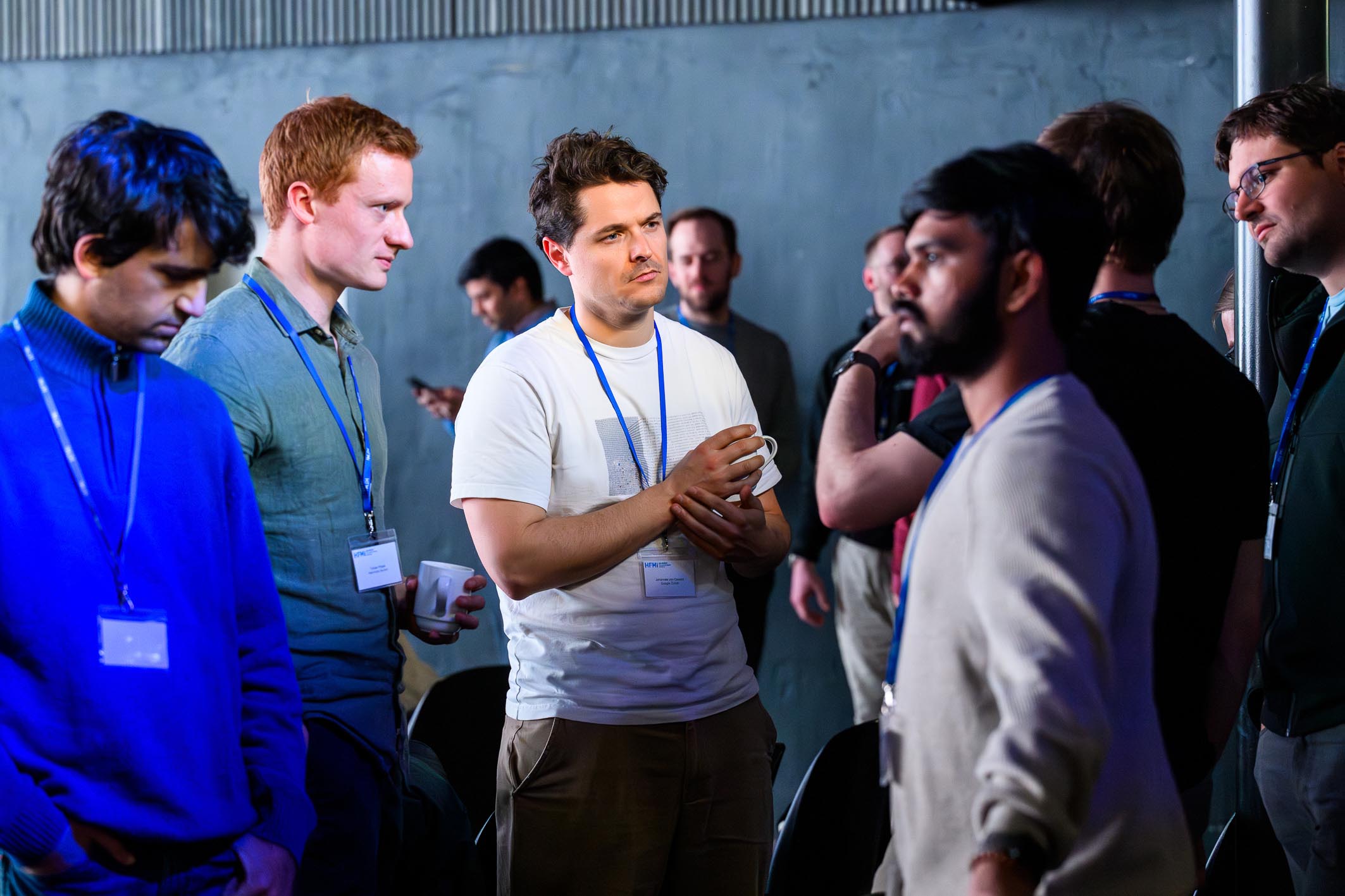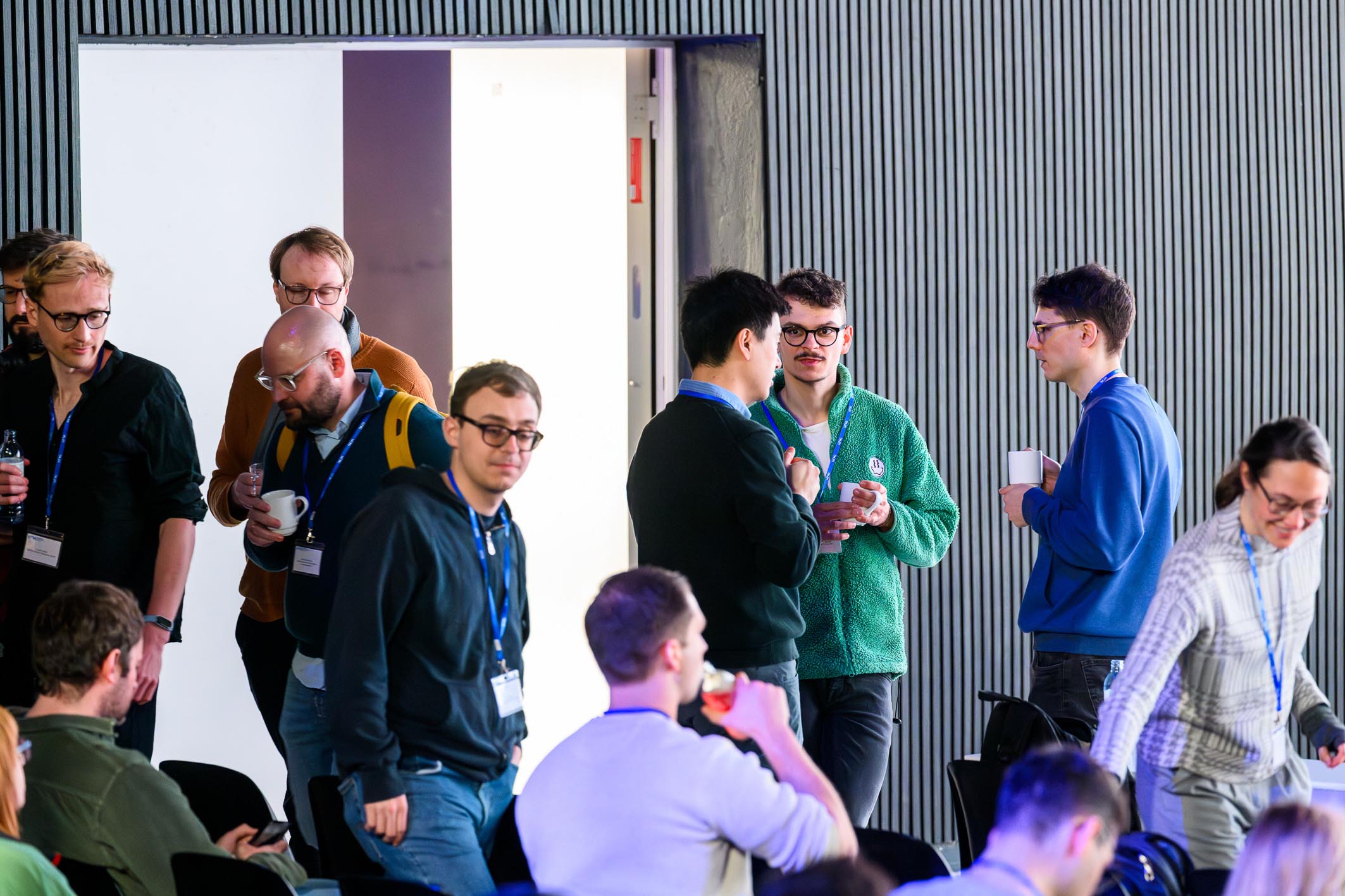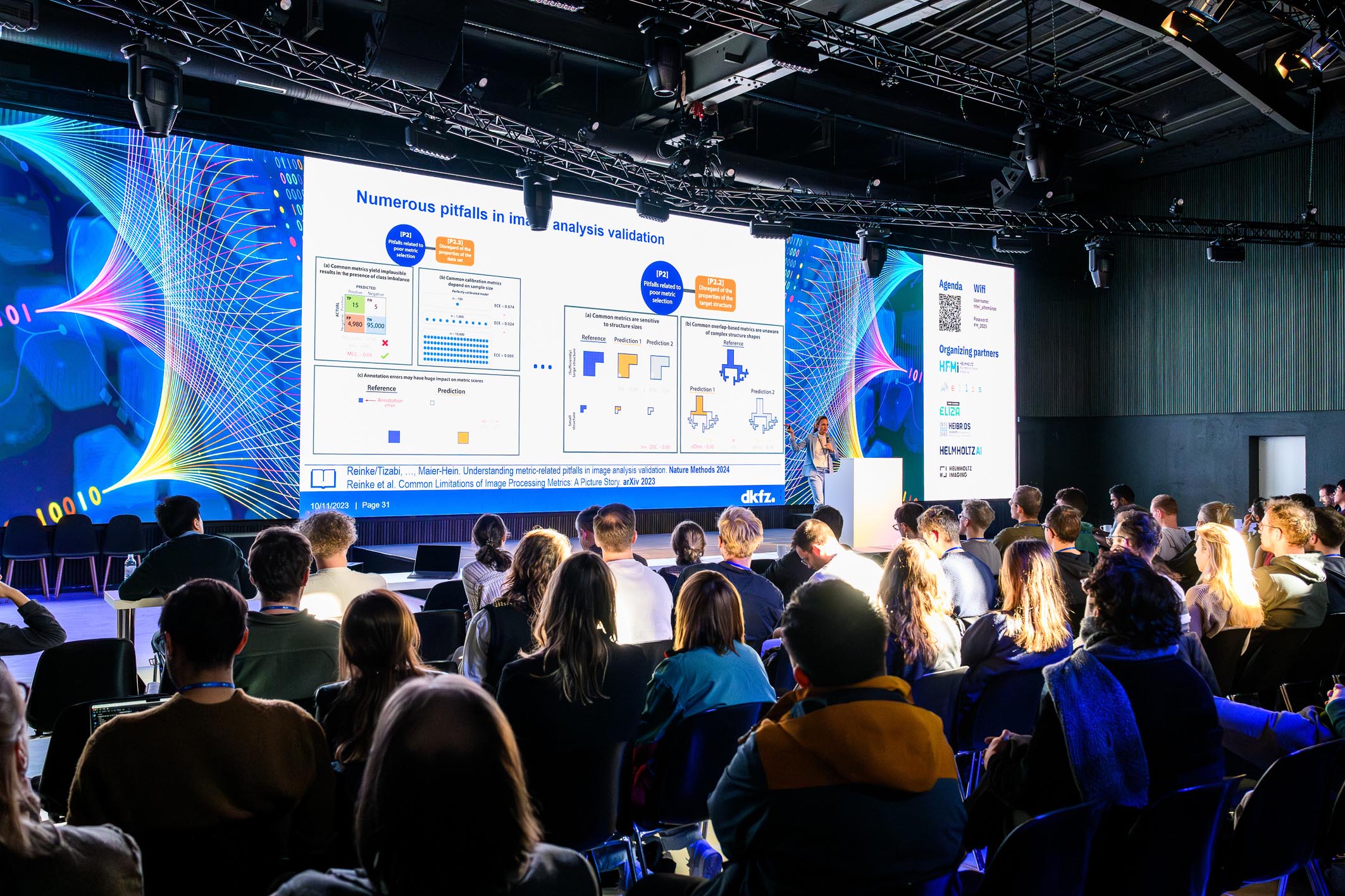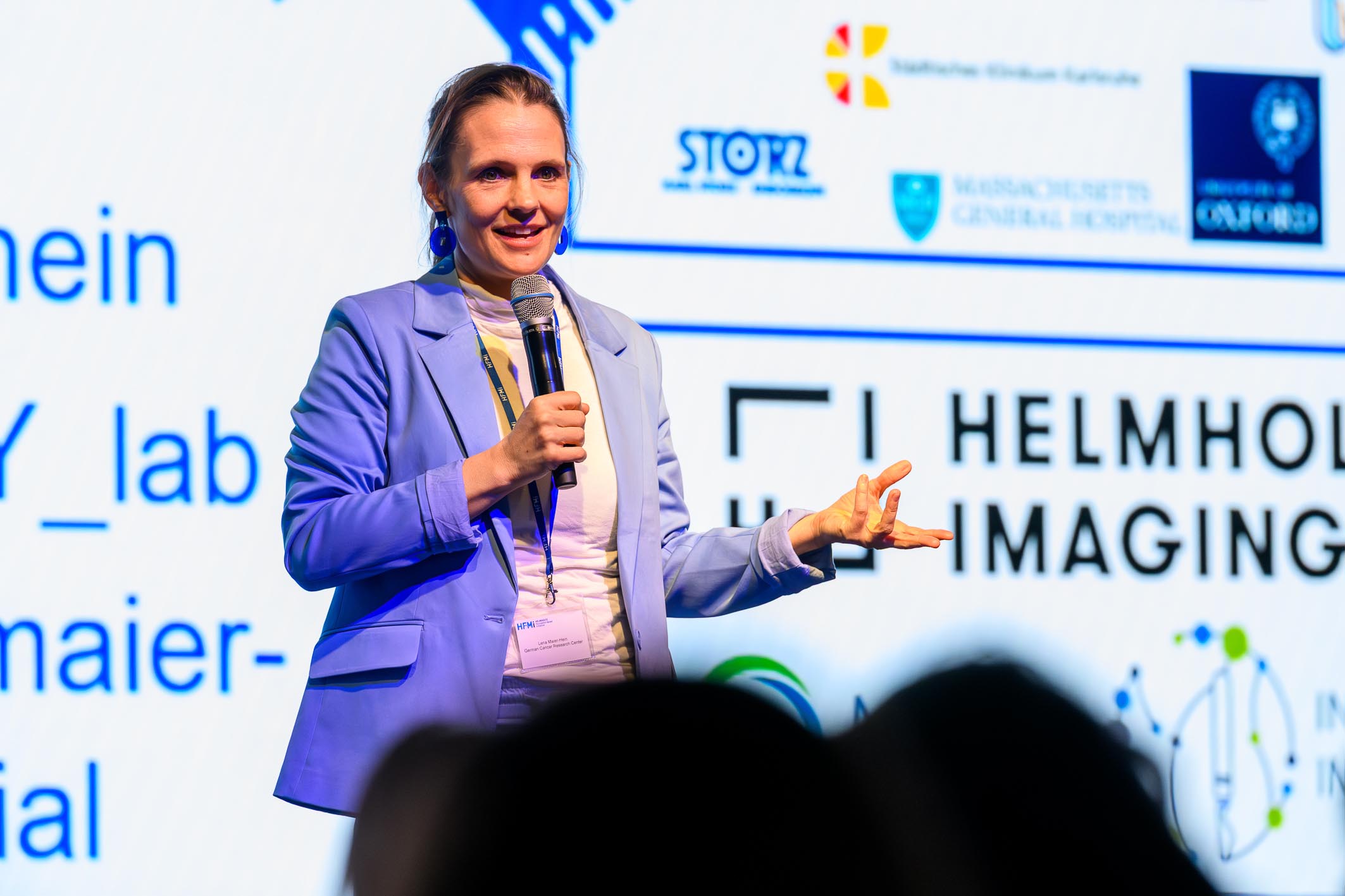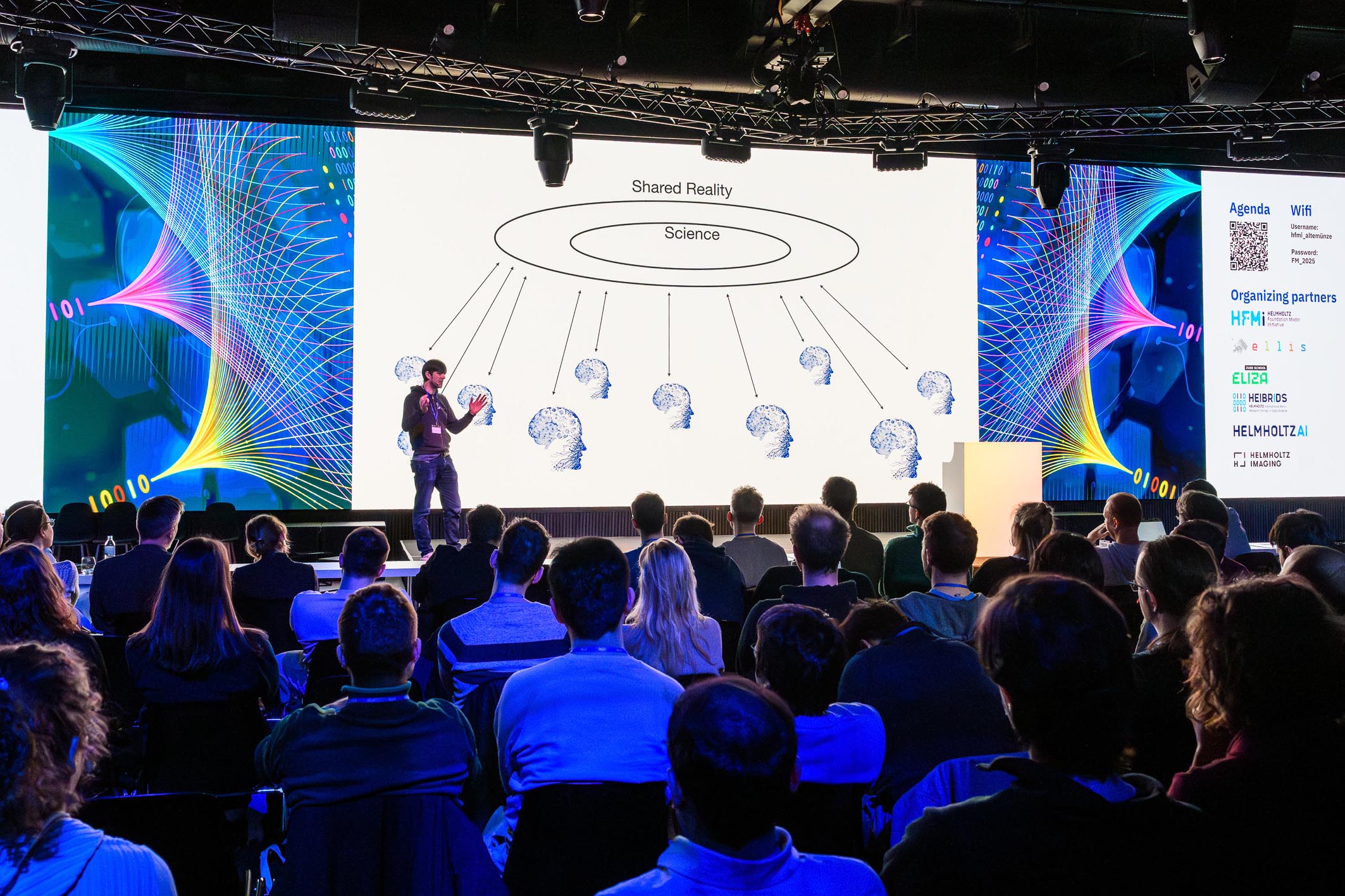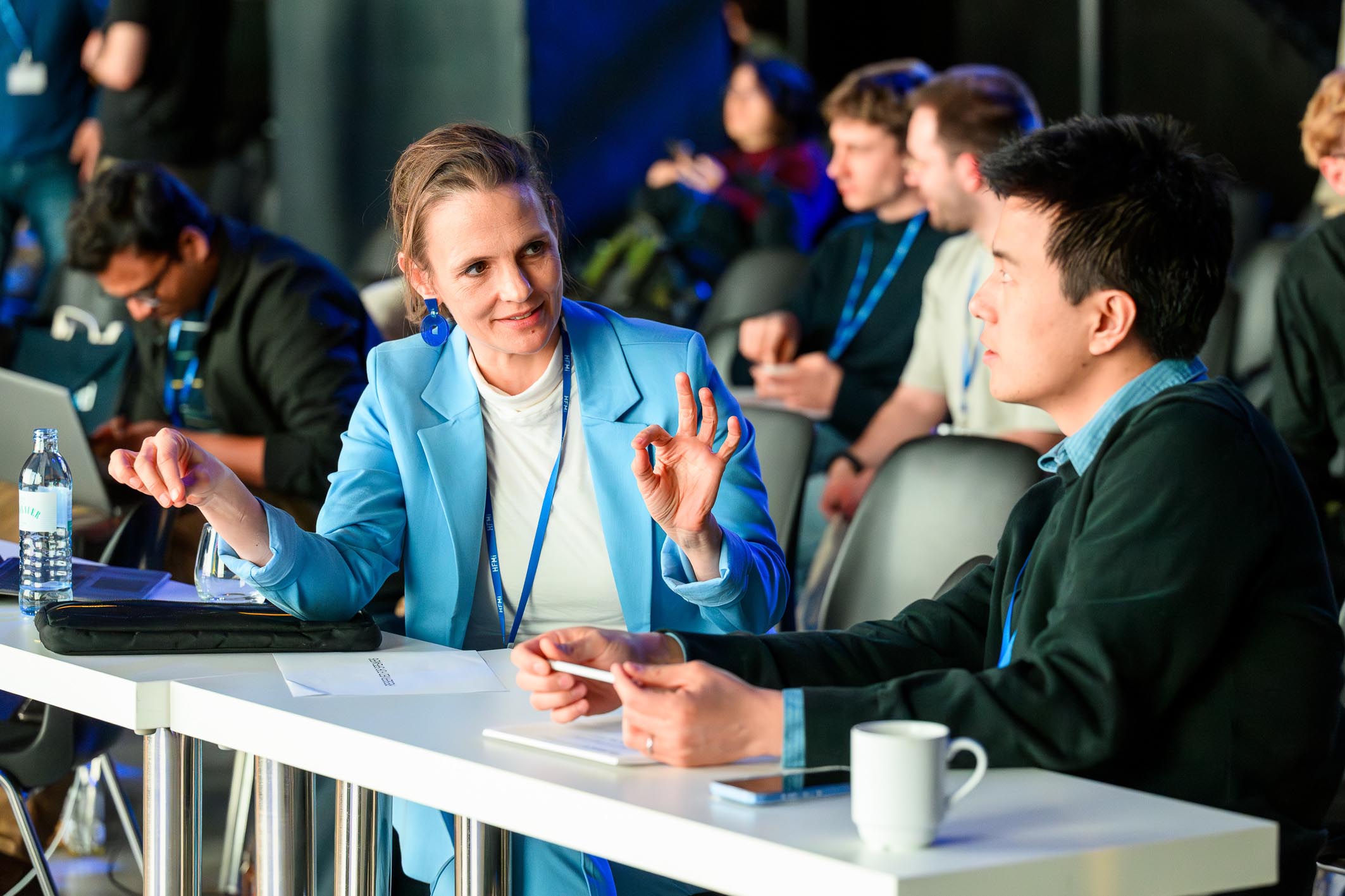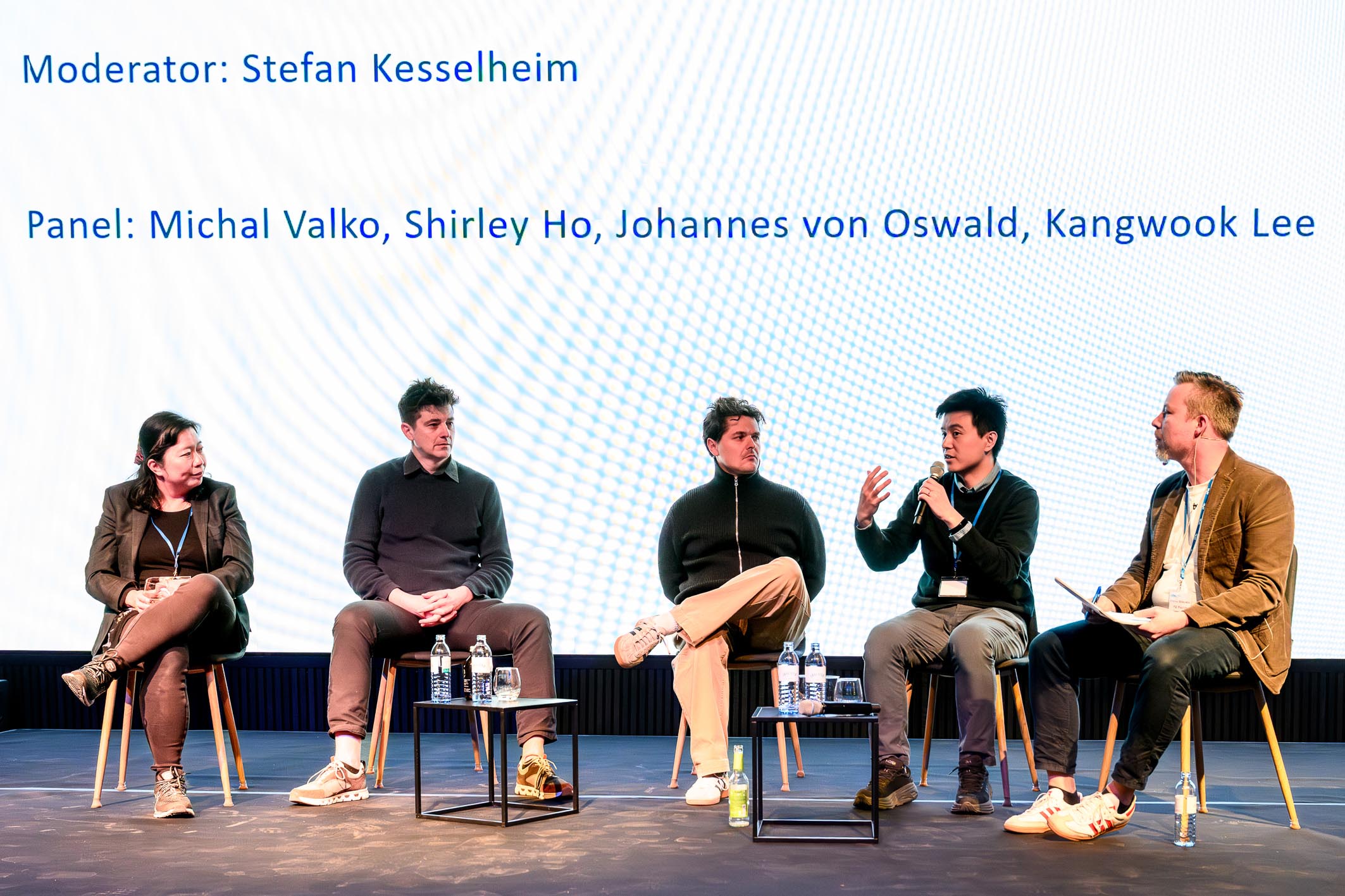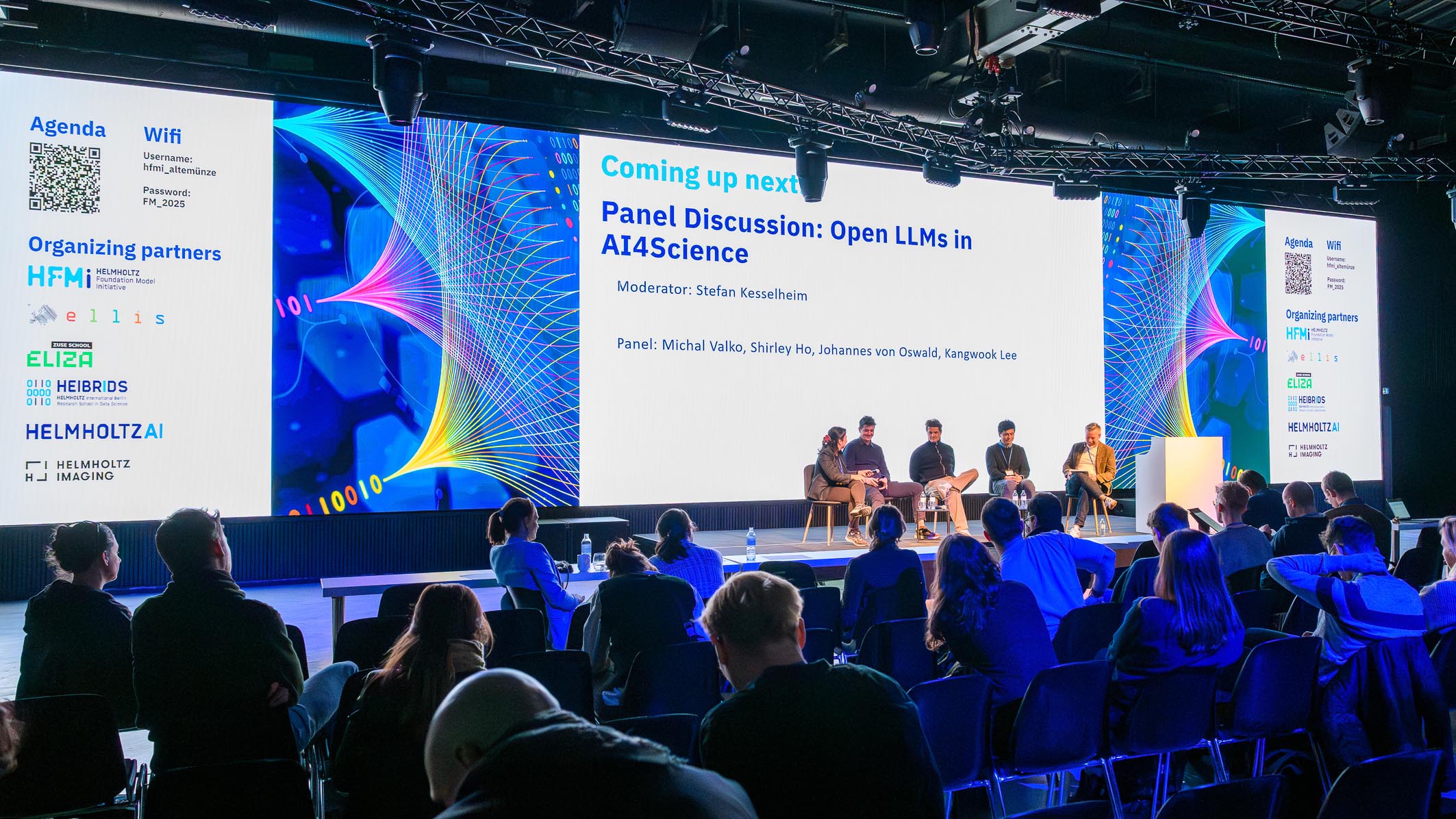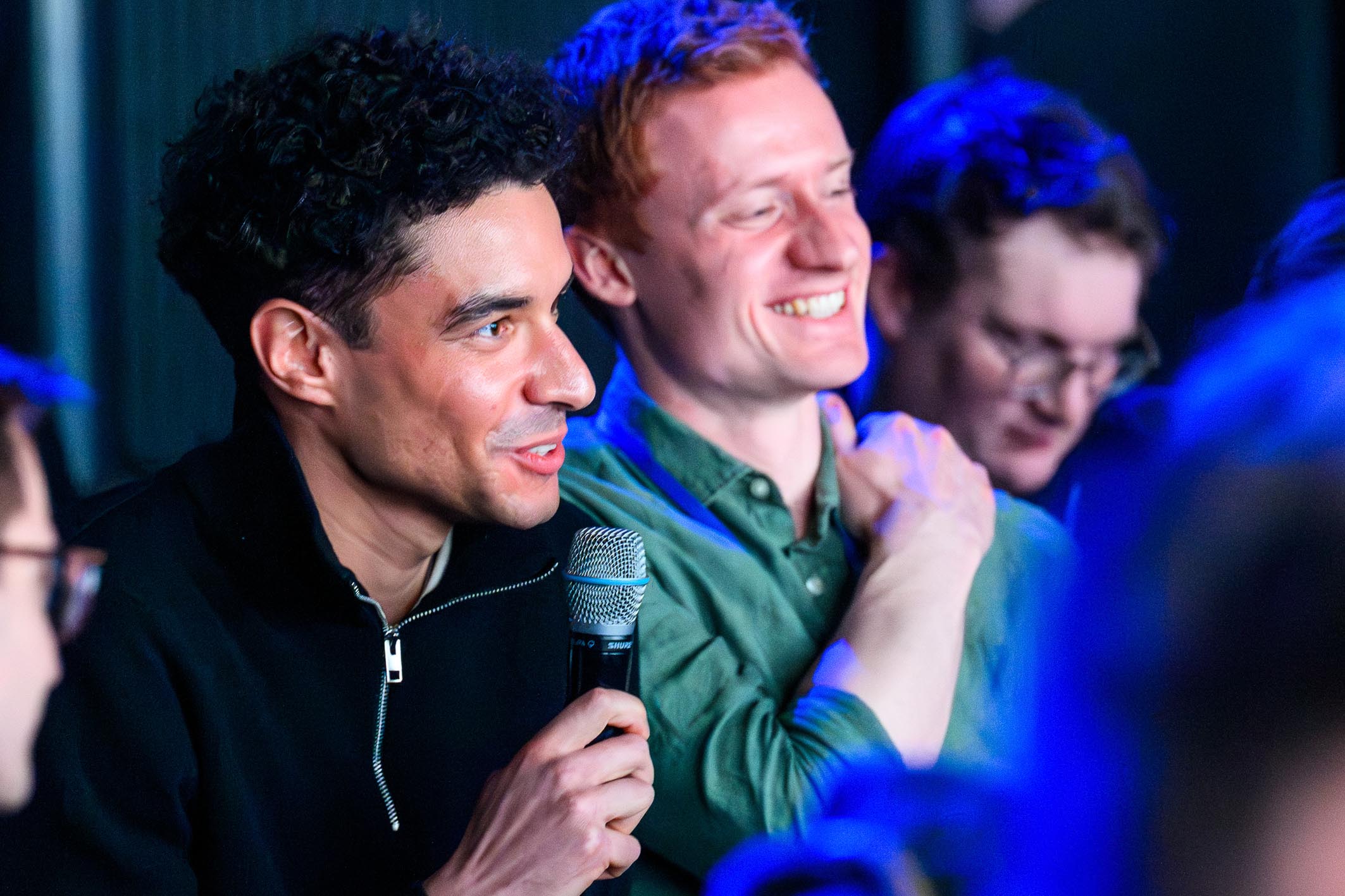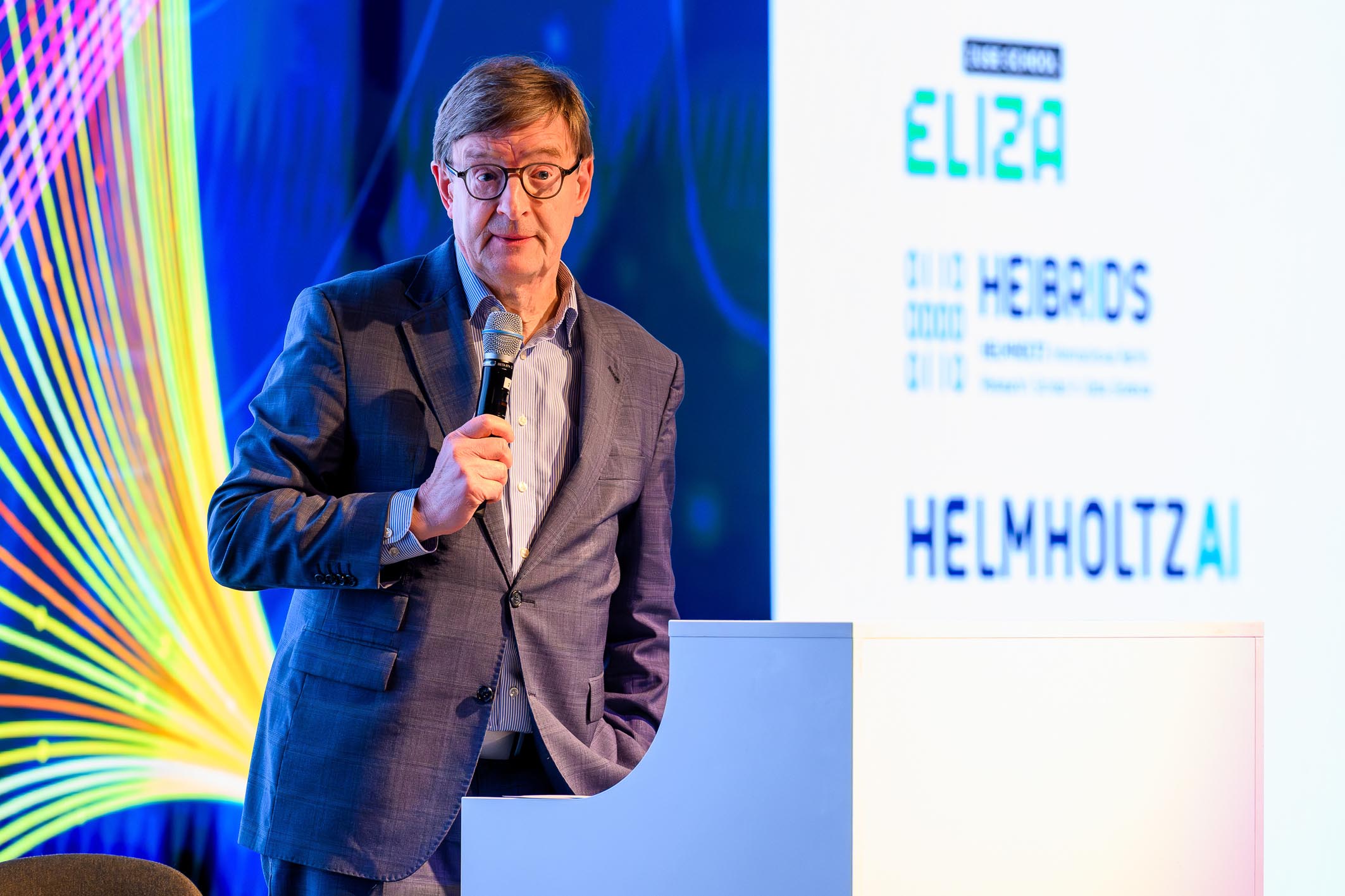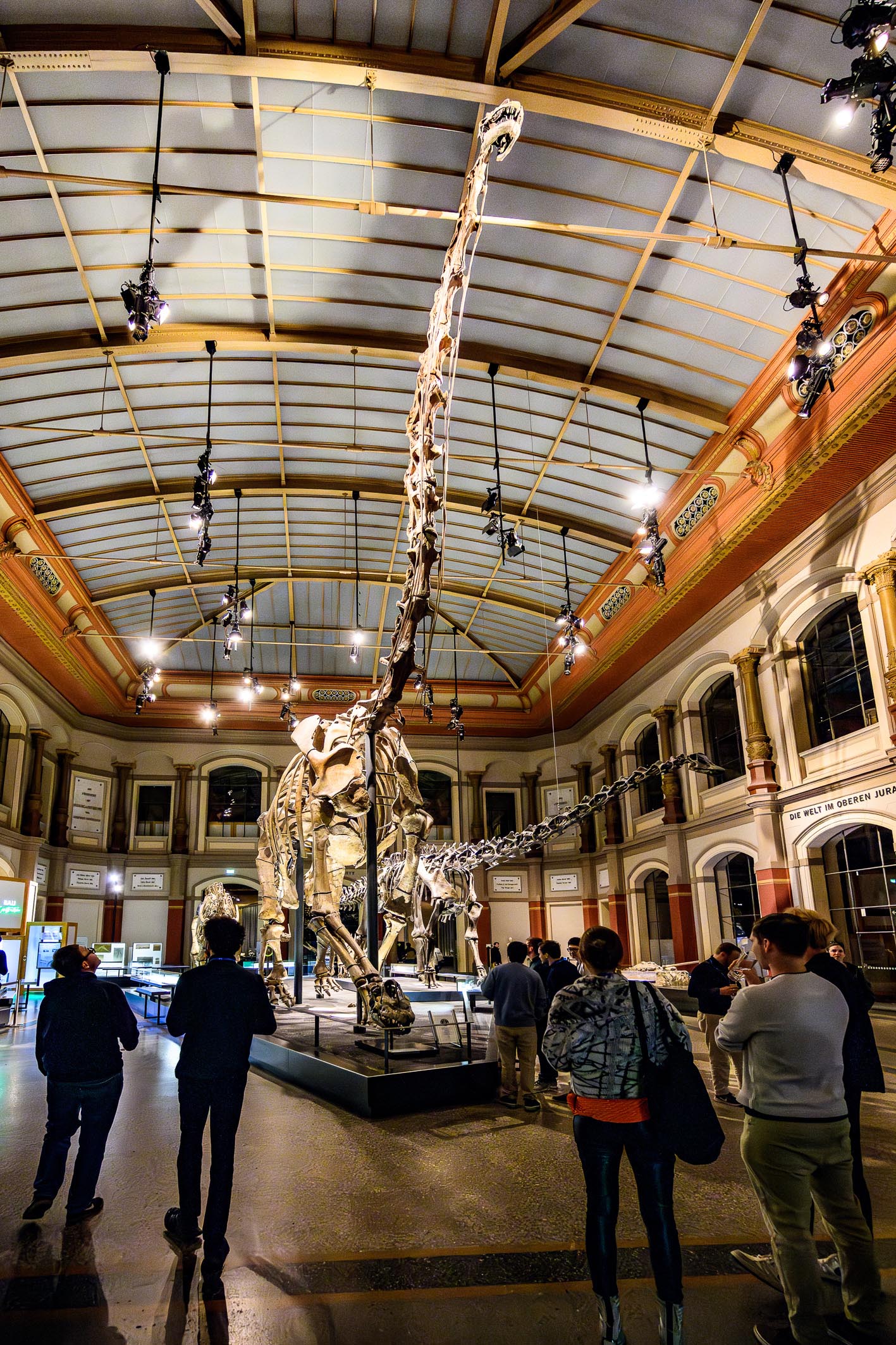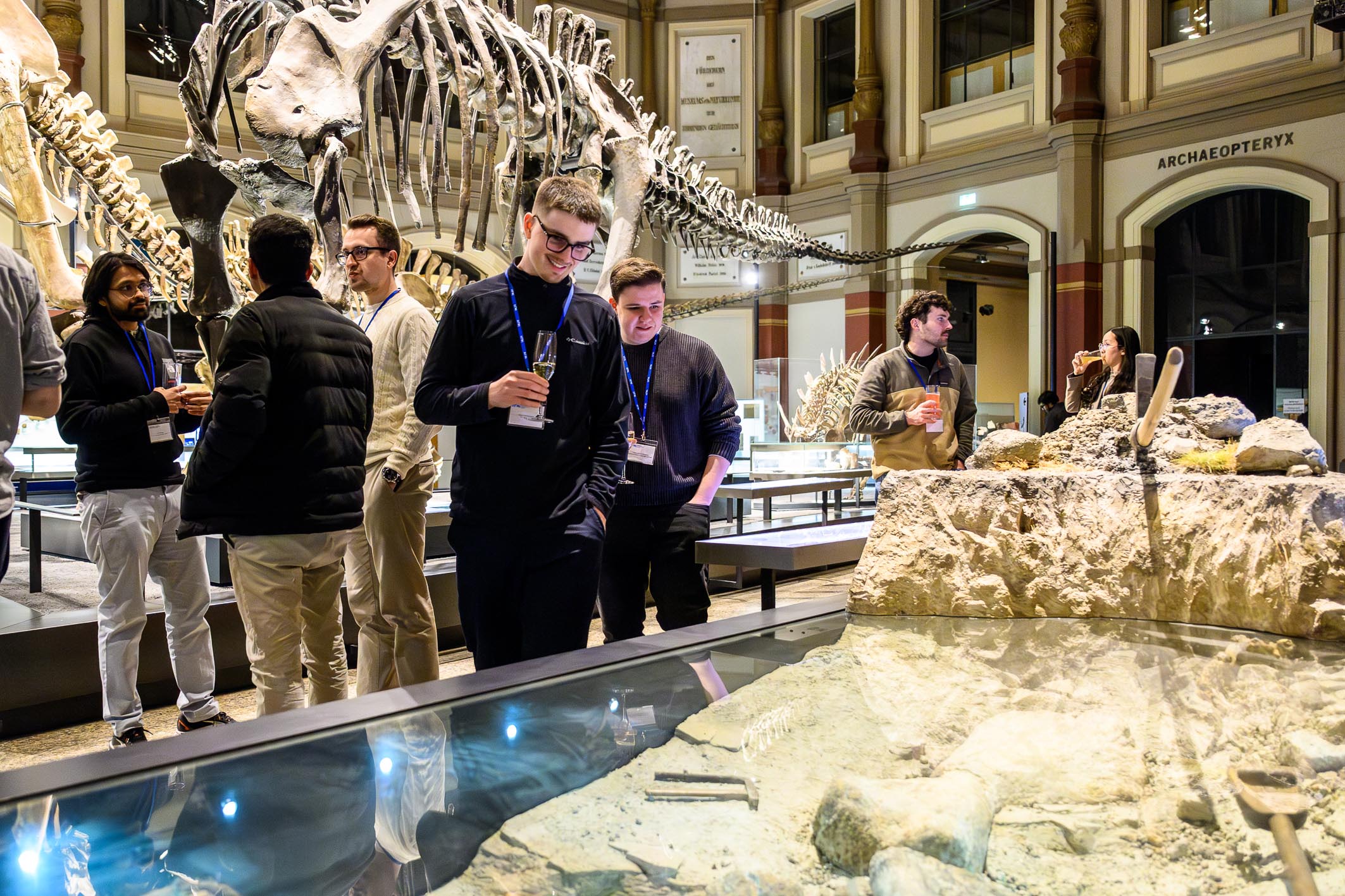Published on 03.04.2025
AI for Science: Helmholtz and Helmholtz Imaging are Shaping the Future of Data-Driven Science
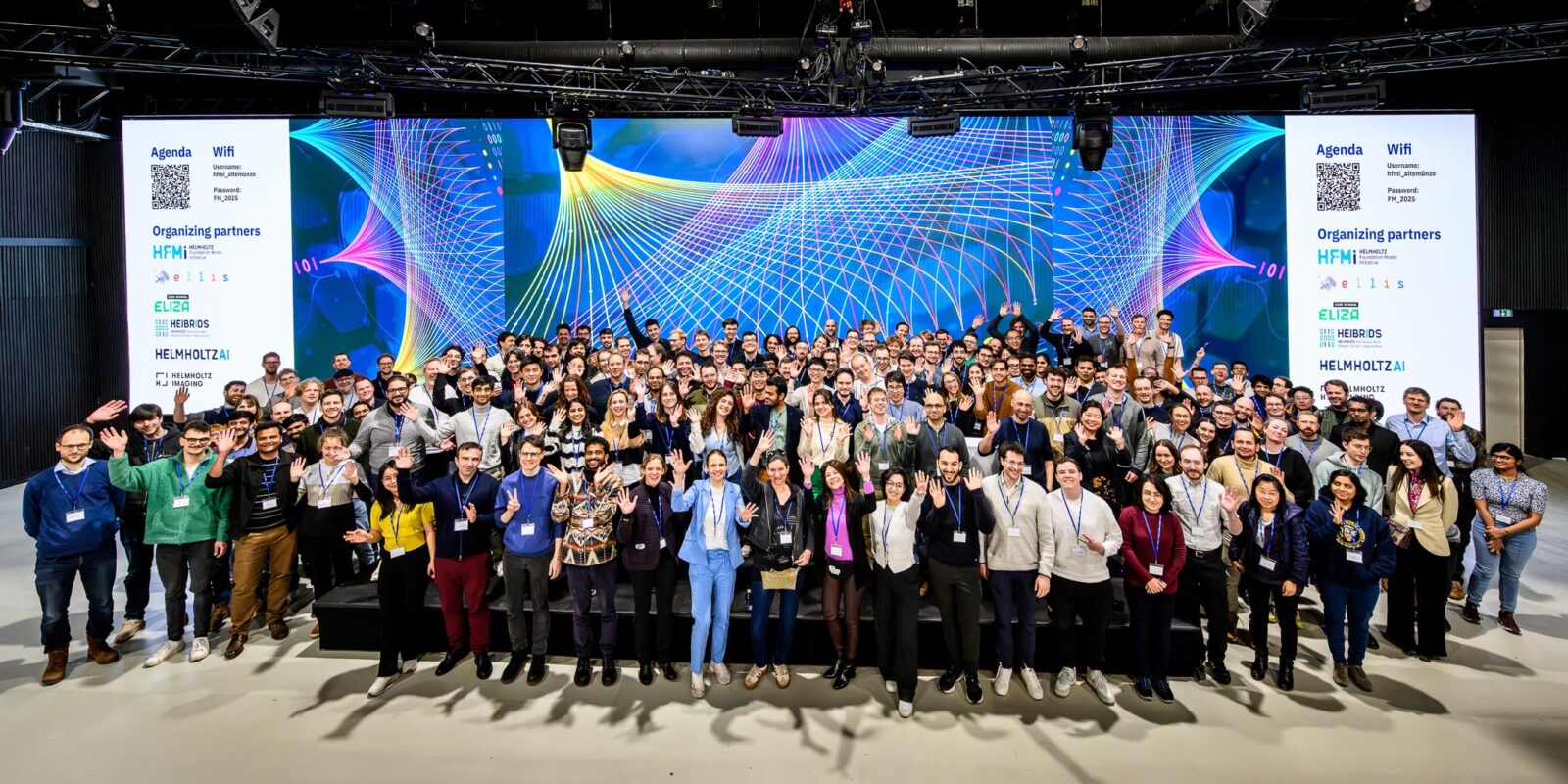
On March 18–19, 2025, the HFMI-ELLIS Workshop on Foundation Models in Science brought together an exceptional group of experts working at the intersection of artificial intelligence and science. Held in Berlin, the event featured speakers from the Helmholtz Association and organizations such as ETH Zurich, Meta, Microsoft, and the Simons Foundation. Over the course of two days, participants explored the potential of large language models (LLMs), multimodal AI, and recent advancements in AI model development. To strengthen collaboration and share knowledge, Helmholtz Imaging actively supported the HFMI-ELLIS Workshop, and contributed through welcoming remarks, a scientific presentation, and session chairing (explore the agenda).
Beyond the technical insights, the workshop fostered an open and critical dialogue about how foundation models can be developed and evaluated in ways that truly serve the scientific community. But what really set the event apart was the atmosphere: one of deep engagement, shared curiosity, and a common drive to make AI useful and meaningful for real-world research challenge.
“What I particularly loved about this meeting was that people were solution-oriented toward advancing science – as opposed to outperforming a previous model on some benchmark that means nothing to the scientists,” said Dagmar Kainmueller, Spokesperson and Head of Research Unit at MDC and co-initiator and co-speaker of AqQua and the Synergy Unit, in an interview with MDC. “At the usual AI conferences, you get lots of the latter category. Lucas Beyer from OpenAI for example, showed that a considerable chunk of the AI community has been horse racing towards a questionable objective – meaning they have been targeting one very specific, very narrow-scoped benchmark goal of the computer vision community. It was really refreshing to have this workshop with so many people who oppose this, even though it’s hard.”
Lena Maier-Hein, Center Coordinator for Helmholtz Imaging at DKFZ and invited speaker at the workshop, echoed the need for more robust and meaningful evaluation approaches: “The workshop reinforced my belief that greater investment in data-centric approaches is essential, ranging from the careful selection of training data to the meaningful benchmarking of foundation models. This need spans across modalities and application domains, and even major tech companies struggle with these challenges.”
The Helmholtz community gathered for a dynamic and forward-looking follow-up workshop to foster networking, share ideas, and strengthen collaboration. The HFMI Community Meeting built seamlessly on the momentum established during the HFMI-ELLIS workshop, creating a productive atmosphere for in-depth exchanges and collaborative planning. The workshop featured invited talks from Tim Roith, postdoctoral researcher at the Helmholtz Imaging Research Unit DESY, who presented on model robustness and efficiency within the COMFORT project, and Stefan Feuerriegel, Professor at the Institute of AI in Management at LMU Munich, who spoke about the CausalNet project. Their contributions provided valuable knowledge and spurred engaging discussions on the role of robustness and causality in the context of foundation models.
These insights reflect the spirit of HFMI as a whole, and mark the importance of community-driven collaboration. Helmholtz Imaging’s role within the initiative goes way beyond coordination, contributing directly to several of the funded pilot projects that are now underway.
Helmholtz Imaging’s Role in HFMI
The Helmholtz Foundation Model Initiative (HFMI) was launched in February 2024 to explore how foundation models – AI models trained on large and diverse datasets – can support a broad range of research applications. Coordinated by Helmholtz Imaging and Helmholtz AI, HFMI aims to leverage AI’s potential to improve scientific data analysis and interpretation. The initiative funds seven pilot projects and a Synergy Unit for cross-cutting activities, with a budget of 11 million euros over three years, plus 12 million euros allocated to infrastructure development. The open-source models developed through HFMI will enable a broader research community to benefit from AI-driven advancements.
Helmholtz Imaging is involved in three of the funded projects: The Human Radiome Project, AqQua, and the Synergy Unit.
The Human Radiome Project: AI for Medical Imaging
The Human Radiome Project is a collaboration involving partners partners from Helmholtz Centers, industry, academia, and medical facilities. It aims to build an AI model using a large collection of 3D radiological scans (MRI, CT) to improve understanding of human anatomy and disease. By integrating imaging data with other sources such as genomics and clinical information, the project seeks to support more precise diagnostics and personalized medicine.
As Paul Jäger, co-initiator of the project explains: “The Human Radiome Project aims to drive a paradigm shift in medical research, providing novel insights into human health and disease through the power of AI. By integrating a wide range of radiological data, we strive to pave the way for groundbreaking advancements in personalized medicine, improving the accuracy of diagnoses and the quality of patient care.”
AqQua: AI-Enabled Monitoring of Plankton and Climate Change
The AqQua (Aquatic Life Foundation Project) focuses on marine ecosystems and their role in climate regulation. Led by an interdisciplinary team, with Helmholtz Imaging serving as the AI lead, AqQua uses AI and high-performance computing (HPC) to analyze large collections of plankton images from oceans around the world. Plankton plays an important role in carbon sequestration, yet there is still significant uncertainty about its biomass and function in the global carbon cycle. AqQua’s AI model will classify species, extract biological traits, and estimate organic carbon content, helping to improve climate models and ecosystem monitoring.
“We know that plankton plays a major role in sequestering carbon from the atmosphere. We also know that plankton biomass is decaying due to climate change. With that said, it is horrifying to me how little is known about the abundance of most plankton species, and how uncertain estimates of respective carbon uptake are. AqQua is a truly unique opportunity to push for operational global monitoring of plankton biodiversity and carbon export, and I very much look forward to the concerted effort we will pursue with our fantastic interdisciplinary consortium,” says Dagmar Kainmueller, co-spokesperson for AqQua.
The Synergy Unit: AI Collaboration Across Disciplines
The Synergy Unit, initiated by Helmholtz Imaging and Helmholtz AI, is designed to support all HFMI projects by developing general principles for AI model creation and usage across various domains. It collaborates with researchers across disciplines to ensure that foundation models can be effectively used in different fields.
The unit also focuses on community engagement, knowledge sharing, and methodological development to ensure the long-term impact of HFMI. As Dagmar Kainmueller, co-initiator and spokesperson for the initiative, notes: “With the Synergy Unit we gladly continue to serve as representatives and drivers of HFMI. At the same time we are very excited to leverage the outstanding infrastructure of the Helmholtz Association, comprising its cross-center Information and Data Science Framework as well as its wealth of vast and diverse data, as a unique stage for methodological advances in AI for research data.”
Looking Ahead: AI in Science
HFMI provides a framework for developing AI-powered research tools, developed within the Helmholtz Association, but made available to the whole scientific community. With its extensive data resources, computational infrastructure, and AI expertise, Helmholtz is well-positioned to contribute to the development of foundation models for science.
By supporting interdisciplinary collaboration and open-access models, HFMI aims to accelerate scientific discovery and improve how researchers work with complex datasets.
For more details on HFMI and Helmholtz Imaging’s contributions, visit:
HFMI Website
Helmholtz Imaging News: The Humane Radiome Project & Synergy Unit, AqQua
HFMI-ELLIS Workshop
ELLIS News: The Helmholtz-ELLIS Workshop Explored the Role of Foundation Models Across Diverse Research Fields
Interview by MDC with Dagmar Kainmueller
Helmholtz AI News: Helmholtz-ELLIS Foundation Models in Science Workshop: A Wrap
Tagesspiegel Background article feat. interview with Lena Maier-Hein and Fabian Isensee (in German, behind a paywall)
